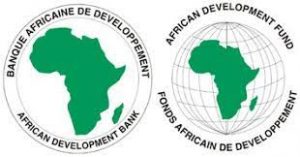Onome Amuge
African countries are facing an overwhelming 500 percent increase in debt servicing costs when borrowing from global markets, according to the African Development Bank’s chief economist, Kevin Urama.
Urama stated this during a recent African Union Extraordinary Session in Abuja, Nigeria.
Urama outlined the debilitating financial stress that Africa is struggling with, stemming from soaring borrowing costs in international markets.
He noted that the growing trend of borrowing from private creditors has aggravated Africa’s debt burden, with 49 percent of the continent’s debt owned by private lenders by the end of 2023.
According to Urama, the disconcerting shift towards private lenders is only going to get worse, with 54 percent of Africa’s debt owned by private creditors by 2024.
The change in the structure of Africa’s debt, he pointed out, has had severe consequences, with African countries now paying five times more in interest on loans compared to borrowing from multilateral institutions like the African Development Bank (AfDB) or the World Bank.
Urama stated, “The changing structure of debt toward private creditors comes with opportunities and challenges. For example, African countries are paying 500 percent more in interest costs when borrowing in international capital markets than when borrowing from multilateral development banks such as the African Development Bank, the World Bank.
“Using short term, high-cost debt to finance long term development projects, therefore, has implications for debt sustainability in the medium to long terms.”
The AfDB VP underlined that the sharp rise in borrowing costs is an ominous sign for Africa, which is already reeling under a mounting debt crisis.
He outlined that Africa’s public debt has increased by 170 percent since 2010, due to a combination of factors such as systemic issues in the global debt system, recent global shocks, and weaknesses in Africa’s own economic policies.
The AFDB’s 2024 African Economic Outlook Report predicts that African nations will spend $74bn on debt service in 2024, up from just $17 billion in 2010. Of this, $40 billion is owed to private creditors, accounting for 54 percent of the total debt service.
Urama stressed that 20 African countries are now struggling with debt distress or are at high risk of it, a jump from 13 in 2010.
Facing a growing debt crisis, Urama revealed the AfDB’s proposal for the African Financial Stability Mechanism, a solution that could provide African nations with sustainable, low-cost refinancing options, reducing their dependence on high-cost private lenders.
The proposed mechanism is the fruit of three years of efforts, and its goal is to create a safety net for African countries struggling with unsustainable debts. By offering more favourable terms and reducing reliance on private creditors, the mechanism aims to protect African economies from the potentially devastating consequences of a debt spiral.
Urama also stressed the urgent need for reforms in the global financial system. He pointed out that Africa is the only continent without a regional financing stability mechanism, leaving it exposed to geopolitical tensions, climate risks, and volatile global economic trends.









